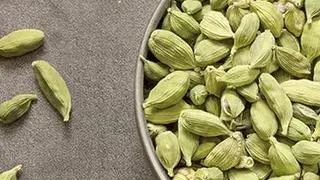Piyush Desai, Chairman and Managing Director of the Wagh Bakri Tea Group, is a leading voice in India’s tea industry with his company, Gujarat Tea Processors & Packers Ltd, commanding major market shares in the western States. Established in 1892, the premium company is the third largest packaged tea company in India – after Tata Tea and Hindustan Lever – with a turnover of over ₹1,000 crore and distribution of more than 40 million kg (mkg) of tea per annum. Pioneering the concept of 5-Star tea lounges in India, it also exports tea to over 30 countries. The ₹3.15-lakh crore Indian tea industry (including exports worth ₹50,000 crore), Desai says, is currently facing thorny issues like competition from imports and increasing consumption of coffee, reasons that seem to be stagnating the industry. Excerpts from an interview:
India, with 1,250 mkg annual production, is the world’s second largest tea producer after China (1,800 mkg). Why is the Indian tea industry showing signs of stagnation?
Firstly, we are facing price competition from Kenya, which produces 300 mkg of tea per annum and exports to India about 10 mkg of ‘brown tea’, seen as low quality in international market. Although India levies 100 per cent import duty on this, the Kenyan tea still comes ₹25-30 a kg cheaper in India.
Between 2007 and 2014, India’s tea production increased from 986 to 1,207 mkg while consumption increased only from 810 to 895 mkg. Unless the Centre rationalises import duty on tea, the domestic industry will continue to suffer.
What suggestions you have on this count?
India should levy progressively increasing duty as the imported quantity increases. This rationalisation of import duty would protect our domestic tea industry by providing a level-playing field, competitive environment and increasing exports.
How is coffee posing a challenge to tea?
Of late, coffee is becoming popular, mainly in urban areas. This industry is growing at 8-10 per cent per annum as against tea industry’s 3-5 per cent growth. The production of 327 mkg of coffee last season fetched far higher value than tea. So, in some areas, coffee is emerging as a challenge to tea. So, our tea industry is either stagnant or losing sales against coffee.
Are there any other problems afflicting the tea industry?
It seems so. While the Centre wants Assam to increase wages of tea garden workers – which may force some of the economically unviable tea gardens to close down – not much is being done to protect quality of tea produced in the North-East.
For instance, some tea farmers, with small land holdings, are producing tea in their ‘kitchen gardens’.
While it is “substandard” in quality, it comes relatively cheaper, and, in the process, financially harms the established quality tea producers. It also poses health hazards due to increased use of pesticides to boost production.







Comments
Comments have to be in English, and in full sentences. They cannot be abusive or personal. Please abide by our community guidelines for posting your comments.
We have migrated to a new commenting platform. If you are already a registered user of TheHindu Businessline and logged in, you may continue to engage with our articles. If you do not have an account please register and login to post comments. Users can access their older comments by logging into their accounts on Vuukle.